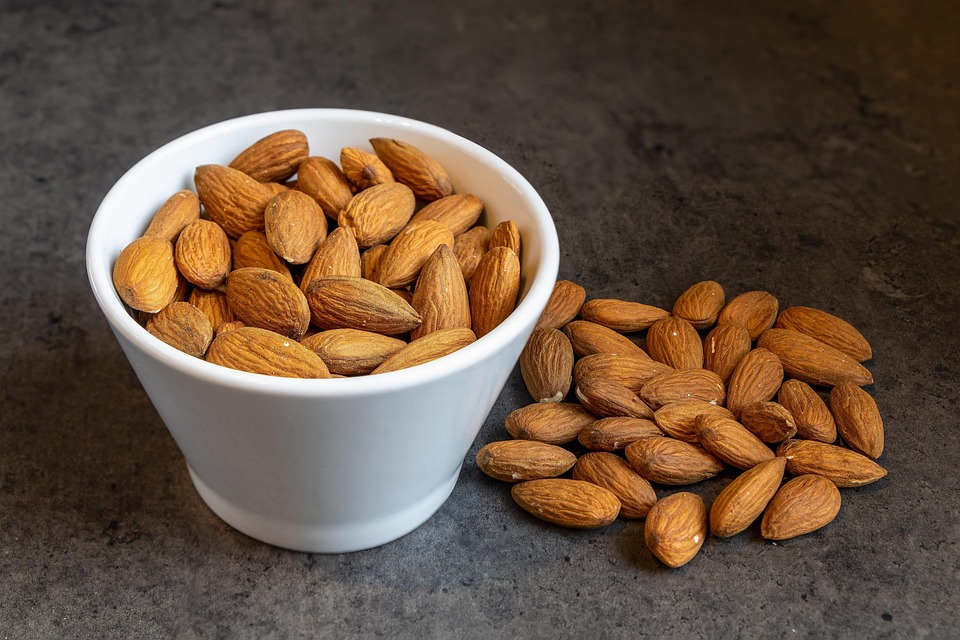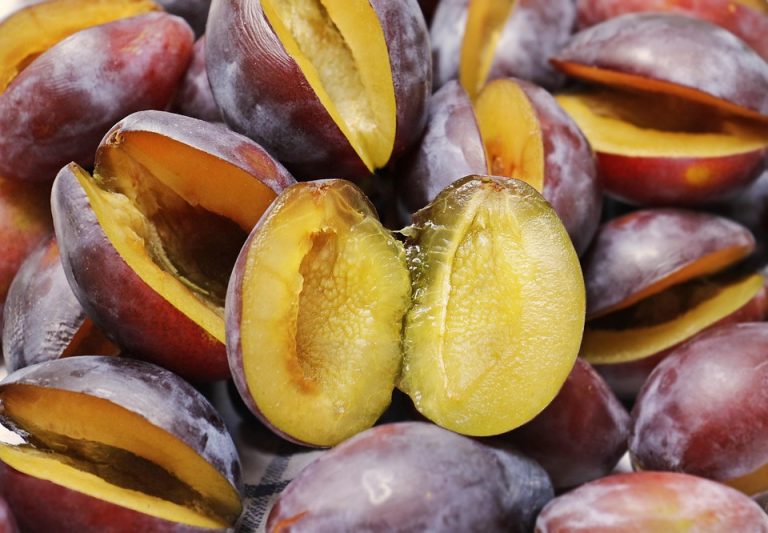Calcium-packed foods are the unsung heroes of your diet, quietly working to build and maintain stronger bones. Your bones deserve the best, and calcium is a key player in their health. Whether you’re a busy professional, a devoted parent, or enjoying your golden years, keeping your bones strong isn’t just a good idea—it’s essential. Let’s dive into the world of calcium-rich foods that can help you fortify your bones and enhance your overall well-being.
Contents
- What is Calcium and Why Does It Matter?
- 1. Dairy Products: The Classic Choice
- 2. Leafy Greens: Nature’s Powerhouses
- 3. Fortified Foods: A Smart Choice
- 4. Fish with Bones: A Hidden Gem
- 5. Nuts and Seeds: Crunchy and Calcium-Rich
- 6. Tofu: A Versatile Plant Protein
- 7. Beans and Lentils: Power-Packed Proteins
- 8. Sweet Potatoes: More Than Just a Side
- 9. Seaweed: A Unique Option
- 10. Figs: A Sweet Treat
- The Importance of Vitamin D
- How Much Calcium Do You Need?
- Bottom Line
- FAQs
What is Calcium and Why Does It Matter?
Calcium is a vital mineral that your body needs for various functions, but it plays a starring role in bone health. Your bones are constantly undergoing a process called remodeling, where old bone is broken down and new bone is formed. Calcium is the building block of this process. Without enough calcium, your body may pull it from your bones, leading to weakened bone structure over time.
This is particularly important as you age. Osteoporosis, a condition characterized by brittle and fragile bones, affects millions. By ensuring you get enough calcium through your diet, you can significantly reduce your risk of developing osteoporosis and other bone-related issues.
1. Dairy Products: The Classic Choice
When it comes to calcium, dairy products are often the first to come to mind. They’re not just delicious; they’re packed with nutrients.
- Milk: A glass of milk provides about 300 mg of calcium. Choose low-fat or fat-free options for maximum health benefits.
- Yogurt: This creamy delight can offer up to 400 mg of calcium per serving. Plus, it’s great for your gut health.
- Cheese: Hard cheeses like Parmesan can contain over 1,000 mg per ounce! Enjoy it in moderation for a calcium boost.
2. Leafy Greens: Nature’s Powerhouses
Don’t underestimate the power of leafy greens. They’re not just for salads.
- Kale: This superfood offers about 180 mg of calcium per cup. Toss it in smoothies or sauté it for a quick side dish.
- Collard Greens: With roughly 350 mg per cup, collards are a fantastic addition to your diet.
- Spinach: While it contains calcium, it also has oxalates that hinder absorption. Still, it’s a great source for overall nutrition.
3. Fortified Foods: A Smart Choice
Many foods are fortified with calcium to help you meet your daily needs. Always check labels to see how much calcium you’re getting.
- Fortified Orange Juice: Some brands offer up to 300 mg of calcium per serving. It’s a refreshing way to start your day.
- Fortified Plant Milks: Almond, soy, and oat milks often have added calcium to match dairy milk levels. A perfect option for vegans or lactose-intolerant individuals.
4. Fish with Bones: A Hidden Gem
Some fish are not just tasty; they’re also packed with calcium. Look for options that include bones.
- Canned Sardines: These tiny powerhouses provide about 350 mg of calcium per 3.75 oz can. Plus, they’re rich in omega-3 fatty acids.
- Canned Salmon: With bones included, a 3 oz serving can deliver around 180 mg of calcium. It’s an easy way to add nutrients to your meals.
5. Nuts and Seeds: Crunchy and Calcium-Rich
Nuts and seeds are not only crunchy but also a great source of calcium.
- Almonds: A handful (about 1 ounce) gives you 76 mg of calcium. Snack on them raw or toss them in salads.
- Chia Seeds: These tiny seeds pack a punch with 177 mg of calcium per 2 tablespoons. Add them to smoothies or oatmeal for a nutrient boost.
6. Tofu: A Versatile Plant Protein
Tofu is a fantastic source of calcium, especially if you choose calcium-set varieties.
- Firm Tofu: It can provide up to 400 mg of calcium per half-cup. Use it in stir-fries, salads, or smoothies for a protein boost.
7. Beans and Lentils: Power-Packed Proteins
Beans and lentils are not just rich in protein; they also offer calcium.
- White Beans: A cup can deliver around 161 mg of calcium. They’re perfect in soups or salads.
- Black-eyed Peas: About 200 mg of calcium per cup. They make a delicious addition to Southern dishes.
8. Sweet Potatoes: More Than Just a Side
Sweet potatoes are not only delicious but also nutritious.
- Baked Sweet Potato: A medium-sized sweet potato has about 40 mg of calcium. Pair it with your favorite protein for a wholesome meal.
9. Seaweed: A Unique Option
Seaweed is often overlooked but is a treasure trove of nutrients, including calcium.
- Wakame: This seaweed can provide about 200 mg of calcium per 100 grams. Add it to soups or salads for a unique flavor and nutrient boost.
10. Figs: A Sweet Treat
Who says healthy can’t be delicious? Dried figs are a sweet way to sneak in some calcium.
- Dried Figs: Just five figs can give you around 135 mg of calcium. They’re perfect as a snack or added to yogurt.
The Importance of Vitamin D
While calcium is crucial, Vitamin D is equally important in helping your body absorb calcium effectively. Get some sunlight, eat fatty fish, or consider fortified foods to ensure you’re getting enough Vitamin D alongside your calcium-rich diet.
How Much Calcium Do You Need?
The recommended daily intake varies by age and gender:
- Adults 19-50: 1,000 mg
- Women over 50 and men over 70: 1,200 mg
- Teenagers: 1,300 mg
Make a plan to incorporate these calcium-packed foods into your daily meals. It doesn’t have to be complicated—start small, and gradually, you’ll build a strong foundation for your bone health.
Bottom Line
Building stronger bones doesn’t have to be a chore. By indulging in these calcium-packed foods, you’re investing in your health. Remember, it’s never too late to start taking care of your bones. So go ahead, explore these delicious options, and give your body the nourishment it craves.
Take Action: Start with one new calcium-rich food this week! Your bones will thank you.
FAQs
1. Can I get enough calcium without dairy?
Absolutely! Many non-dairy sources like leafy greens, fortified foods, and nuts can provide ample calcium.
2. What are the signs of calcium deficiency?
Signs can include muscle cramps, brittle nails, and increased risk of fractures. If you suspect a deficiency, consult a healthcare professional.
3. Is too much calcium harmful?
Yes, excessive calcium can lead to kidney stones and other health issues. Aim for the recommended daily intake.
For more in-depth information, you can check reputable sources like the National Institutes of Health or the Mayo Clinic. Your journey to stronger bones starts today!
Get Your FREE Natural Health Guide!
Subscribe now and receive our exclusive ebook packed with natural health tips, practical wellness advice, and easy lifestyle changes, delivered straight to your inbox.





